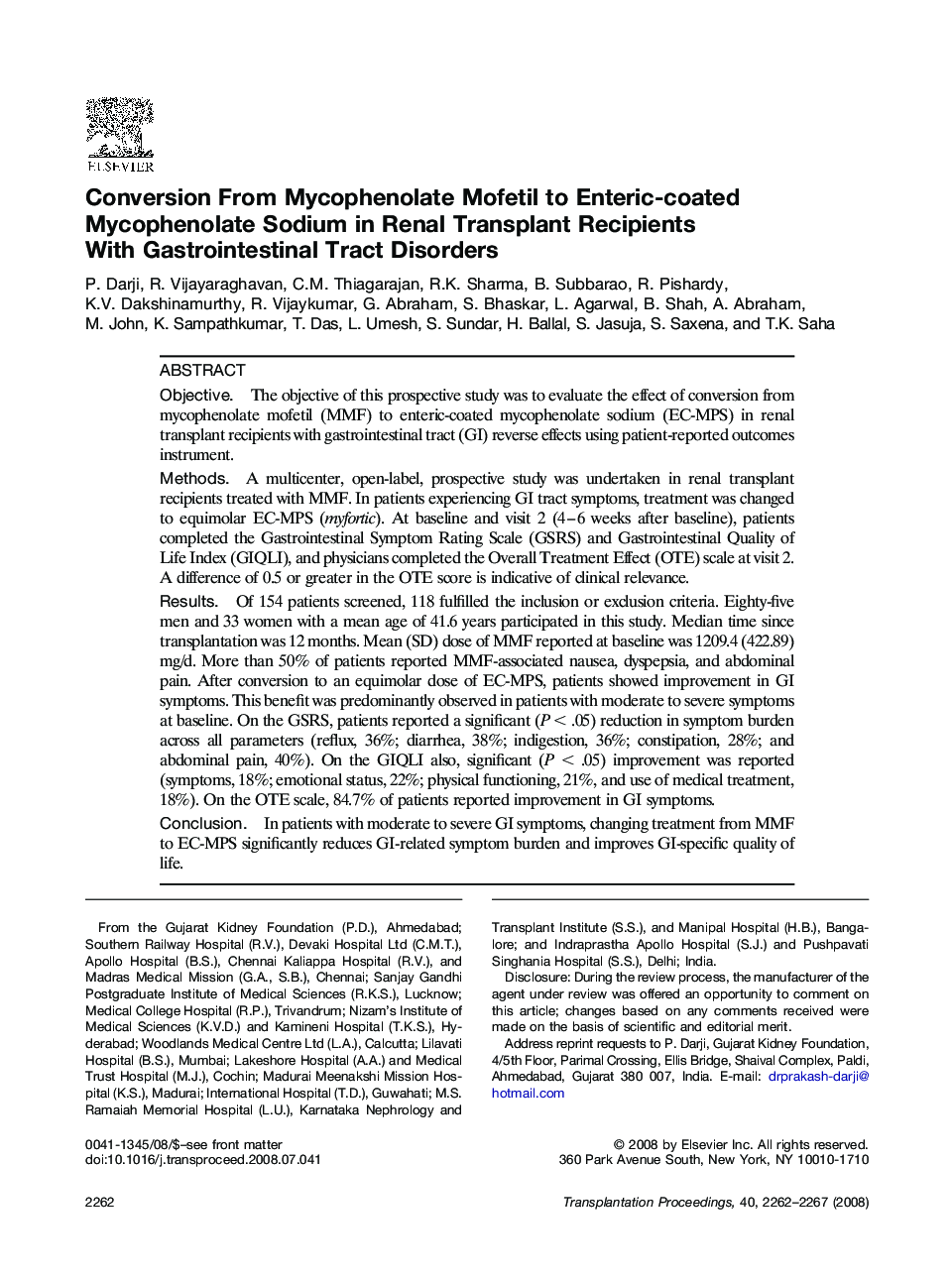| Article ID | Journal | Published Year | Pages | File Type |
|---|---|---|---|---|
| 4262488 | Transplantation Proceedings | 2008 | 6 Pages |
ObjectiveThe objective of this prospective study was to evaluate the effect of conversion from mycophenolate mofetil (MMF) to enteric-coated mycophenolate sodium (EC-MPS) in renal transplant recipients with gastrointestinal tract (GI) reverse effects using patient-reported outcomes instrument.MethodsA multicenter, open-label, prospective study was undertaken in renal transplant recipients treated with MMF. In patients experiencing GI tract symptoms, treatment was changed to equimolar EC-MPS (myfortic). At baseline and visit 2 (4–6 weeks after baseline), patients completed the Gastrointestinal Symptom Rating Scale (GSRS) and Gastrointestinal Quality of Life Index (GIQLI), and physicians completed the Overall Treatment Effect (OTE) scale at visit 2. A difference of 0.5 or greater in the OTE score is indicative of clinical relevance.ResultsOf 154 patients screened, 118 fulfilled the inclusion or exclusion criteria. Eighty-five men and 33 women with a mean age of 41.6 years participated in this study. Median time since transplantation was 12 months. Mean (SD) dose of MMF reported at baseline was 1209.4 (422.89) mg/d. More than 50% of patients reported MMF-associated nausea, dyspepsia, and abdominal pain. After conversion to an equimolar dose of EC-MPS, patients showed improvement in GI symptoms. This benefit was predominantly observed in patients with moderate to severe symptoms at baseline. On the GSRS, patients reported a significant (P < .05) reduction in symptom burden across all parameters (reflux, 36%; diarrhea, 38%; indigestion, 36%; constipation, 28%; and abdominal pain, 40%). On the GIQLI also, significant (P < .05) improvement was reported (symptoms, 18%; emotional status, 22%; physical functioning, 21%, and use of medical treatment, 18%). On the OTE scale, 84.7% of patients reported improvement in GI symptoms.ConclusionIn patients with moderate to severe GI symptoms, changing treatment from MMF to EC-MPS significantly reduces GI-related symptom burden and improves GI-specific quality of life.
